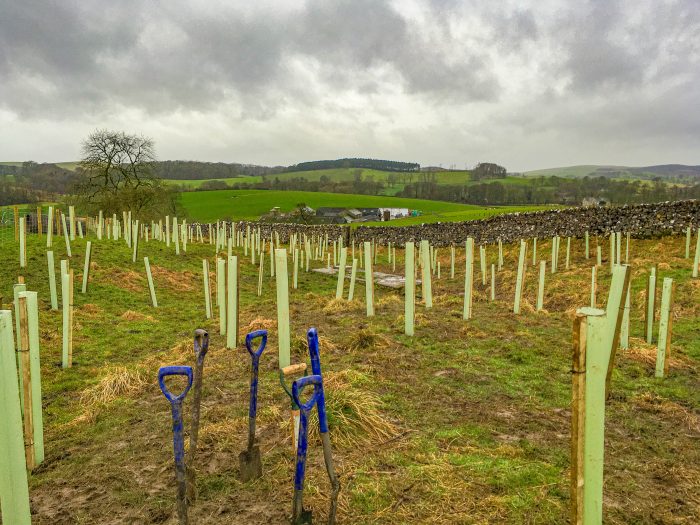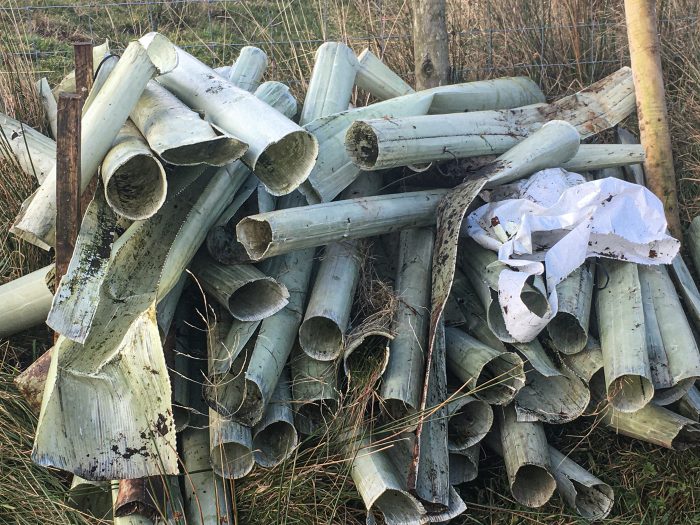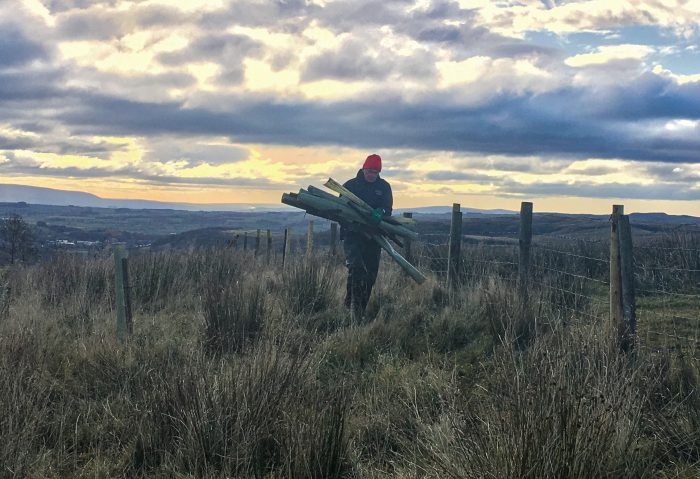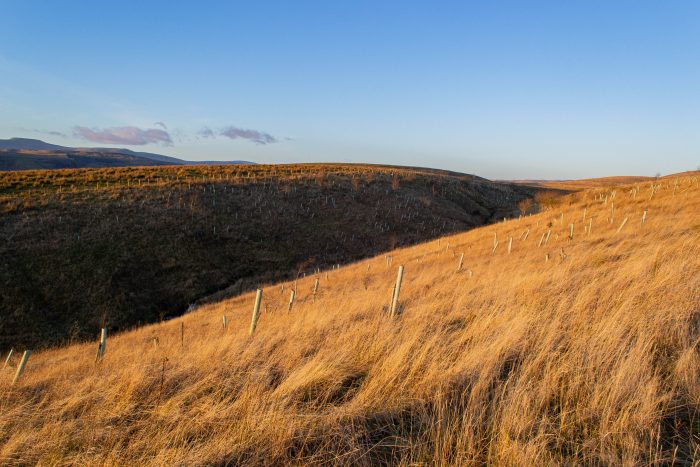Tree planting with plastic guards – is there another way?
December 3, 2020
50 million trees must be planted each year to counteract Britain’s contribution to climate change. Trees often need protecting from grazing animals or harsh weather conditions to become established.
However, the worry is that 1.5 billion plastic tubes will end up littering our environment and damaging ecosystems by 2050. YDMT believes it is time for change and a different approach to establishing new woodland.
Here, Carol Douglas, YDMT’s Woodland officer, explains how we are tackling this issue and how our plastic free woodlands project, awarded funding through EOCA, will support this work.
We all know that trees provide multiple benefits and are one of the most effective solutions in tackling the climate crisis. YDMT is proud of the fact it has supported the planting of 1.5 million trees in the Dales and is already working with landowners to plant another 40,000 this winter.
Most of these trees will have been planted with plastic tree guards to protect them from voles, rabbits, and deer. It is an effective way of planting and reducing tree loss.

If a woodland is well managed, these guards will be removed after approximately 10 years once the trees are established.
Yet, many are often left on site and over time, disintegrate into smaller fragments that find their way into our soils and waterways. We know we must find a different way.
We want to break the reliance on plastic and find sustainable alternatives in woodland creation. This will involve developing short, medium and long term solutions that lead to a change in attitudes and behaviours throughout the UK Forestry sector.
Our project aims to deliver this in three ways:
- Remove redundant tree guards for recycling or energy recovery
- Engage communities and volunteers in tackling the problem
- Trial alternatives and encourage the development of sustainable products
All three would result in a systems change that would transform our woodlands for generations to come.
Currently there are no processes, systems or support available to remove plastic from our woodlands with piles of tree guards often left on the ground or sent to landfill.

The project would see the removal of thousands of redundant tree guards across the Dales for reuse or recycling trials, find new alternatives by planting 7,000 trees in new plastic free woodlands and seek a sector-wide sustainable solution.
We will begin by identifying established woodlands and working with landowners and volunteers to safely remove redundant tubes. Research would identify recycling options and support for landowners to sustainably remove plastic, without damaging the woodland.
A programme would see tubes removed from trees and collected at the farm or land gate, then delivered to a central point before being economically transported to a local processing unit, creating networks of support and economies of scale to make transportation and recycling cost effective. Here, the guards would be recycled or energy reclaimed.
We know landowners need assistance to deal with the plastic problem. Working with volunteers who can not only help remove the tree guards but transport and manage them to a focal point is important – and makes it economically viable.

Working together can make a difference by not only removing the plastic problem but by inspiring people, groups and volunteers to value the countryside, improve their health and wellbeing and bring communities together to help and manage collection hubs.
We also know that removal of tree guards and recycling is probably the easy part of the project. We want to influence national parks, local authorities and the government to remove the use of plastic tree guards from regulatory frameworks and woodland certification requirements as well as ensuring future plastic disposal forms part of any woodland creation process.
We will trial alternative planting methods by creating a number of plastic free woodlands – managed through our existing woodland grants programme. These trials will act as a pilot in developing a nationally co-ordinated study with Forest Research and other stakeholders to test new tree protection products.
Manufacturers are responding to the demand for sustainable solutions and many new products are under development or entering the marketplace. We will only be testing those products that are available commercially.

We will then make suggest a recommended way forward, utilising this data.
With the Glover review and Brexit on the horizon, our project is timed well to help to feed into the government’s new proposed Environmental Land Management scheme and influence at a policy level for structural change in the way we create woodlands.
It is also crucial as we aim to tackle the climate crisis and create beautiful and sustainable woodlands everyone can enjoy.
We’re really excited about keeping you up to date with how the project is progressing and thank you for your support!






